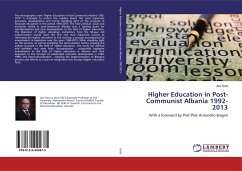Hana Fehrenbach's book examines organizational level transnational strategic alliances. Through the perspectives of dynamic capabilities and neo-institutionalism, the study explores the interplay of rationales, pathways and benefits of transnational alliances over time of leading universities of technology (TU9) in Germany. Complex inter-connected dynamics at the macro (i.e. society), meso (i.e. organization) and micro-levels (i.e. individual) are examined in this qualitative study driven by a deductive approach. These interrelated dynamics are then reflected in a recursive process model called STANCE, which depicts how through these types of alliances, institutions of higher education position themselves in single or multiple organizational fields to gain (more) strategic and social fitness. The study is timely, considering the paucity of comprehensive and theoretically anchored research on this contemporary phenomenon, and the need for policy-makers and senior leadership tomake evidence-based decisions.
Bitte wählen Sie Ihr Anliegen aus.
Rechnungen
Retourenschein anfordern
Bestellstatus
Storno








